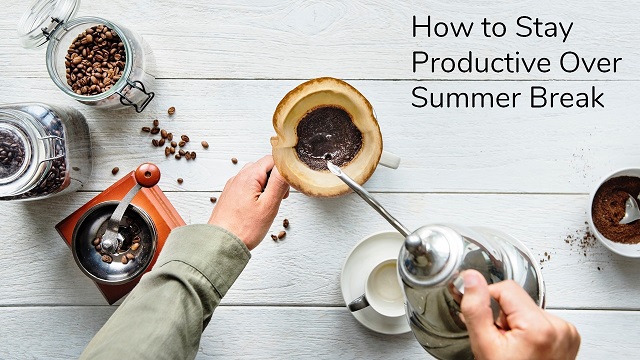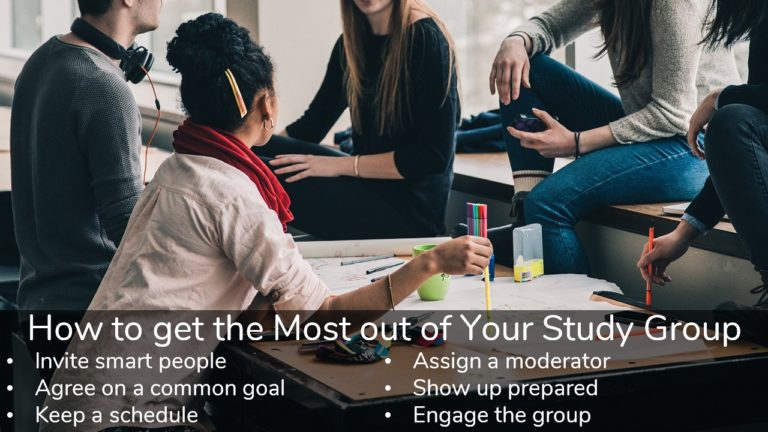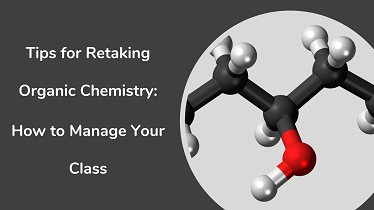How To Be Productive Over Summer Break
Congratulations! You made it through another academic year, and now it is time to celebrate with a well-earned vacation! Three glorious months of summer completely free of teachers, due dates, and studying. Maybe you are planning on visiting friends and family, earning some extra cash with a summer job, or just enjoying some personal time without any outside pressures. No matter what else you are planning on this summer, make sure that you keep your brain engaged! There is a large body of research showing that students lose content knowledge and mental flexibility over the long summer break. This problem can be especially difficult for chemistry students beginning organic or biochemistry courses in the fall because the professor will assume you remember at least something from gen chem and start the semester without reviewing many important concepts. While some college administrators think summer break should be shortened, I think that it can be a great opportunity to review materials at your own pace and build skills and experience that are impossible to develop while classes are in session.
Work On Your C.V.
For many of us, if we take an honest look at our CV there are a few areas we should probably strengthen. The truth is it can be hard to find time in the bustle of daily life to commit to something like an extra leadership role, or service for the community. Yet, these are the things that can make the difference a mediocre application no one will remember and a lasting impression on a potential employer. Summer gives you the extra time you need to buckle down and finish that big project. If you are already involved with clubs or other extracurriculars, pick one or two and become more involved over the summer. Maybe you can organize a special event or develop an outreach program. Otherwise, look for a skill, or a personal project related to your field that you could commit to. Find a passion project and run with it! Build a robot/website/product, start a business, do the thing your 15-year-old self always wanted. Finishing something like this will show that you have mastered your set of skills, have the motivation to follow through with your plans, ability to manage an independent project, and place to show your personality and creativity. Another option for a summer project might be volunteering for a charity. Volunteering has many of the same benefits of internships or summer jobs, such as real-world experience, or developing industry contacts. However, you are also likely to feel more connected to the project you end up working and the people involved with it and will probably be a more enjoyable and memorable experience over all. The last piece of advice I want to give here is to be careful not to overcommit to a large project like this. Thinking you have the rest of the summer to finish and before you know it classes are starting, and you haven’t done anything. Be realistic about the amount of time you have and how you are using it!
Have A Routine
The economist C. N. Parkinson said: “Work expands to fill the time allotted for its completion.” If you feel like you have a lot of time to do something, then you are very likely to put it off or work slowly and not realize how much time is passing you by. The way to get around this is to plan out short term goals and to force yourself to keep a daily routine. This way you will feel like you are working toward an achievable goal. Having a dedicated study space free of distraction that you work in every day is a great tool for improving productivity. Learn more about how to set up a study space.
In addition to setting aside some time every day to achieve one of your projects there are lots of other things that you can work into your routine to build good habits now, so you don’t have to worry about them going into the new school year. If you don’t already exercise now might be a great time so start. In addition to helping you stay healthy, exercise will help to improve your concentration, motivation, and help to give structure to the rest of the week so that you have something to plan your day around. Now is also a good time to reset your sleeping and eating habits. Eating healthy and getting enough sleep will improve your focus, will power, and decision-making abilities which will help you to power through all your summer goals and give you a head start in the spring. We have another blog about how to develop good habits.
Take Summer Classes
Summer is a time to recover from the stress of last years classes and to recommit to personal goals as well as friends and family. For that reason, I don’t encourage students to try to fill up their summer with a whole semester’s worth of classes. However, there are a handful of reasons why it might be a good idea to take one or two extra classes over the summer. Summer classes tend to be smaller and more relaxed than regular classes. If you take a challenging course over the summer you will probably get more attention from your professor, and more support from your peers. If you are taking classes that fill up quickly or are tightly scheduled it might be easier to take that class in the summer. In small and medium sized colleges the first semester of general chemistry, organic chemistry, and biochemistry are only offered in the fall, and the second semesters are only offered in the spring. Students who fall behind might have to wait an entire year before they get another chance to take their class. Summer classes are often a better option. There are also classes that are only offered in the summer and many them involve travel, field work, or other outside the classroom experiences you might not get without signing up for the class. Taking one of these classes can be a fun and rewarding experience that you couldn’t get by taking a similar class during the semester. Finally, if you don’t have too many other plans for your time over the summer it might be worthwhile to sign up for a class to keep your brain engaged and your study skills sharp.
Hire A Tutor
Another way to keep yourself in a learning mindset over the summer is to find a great tutor to work with. If you don’t already have a tutor (you should), summer break is a great time to find a tutor that suits your personal needs and you can develop close working relationship with. Tutors are more than just extra lesson time for students who are doing poorly. They are coaches, and cheerleaders, and personal trainers. They can help you to find your weaknesses and understand topics you are struggling with, but they can also challenge you to take your skills to the next level. Over time a good tutor will learn about all your strengths, weaknesses and personality. They can then customize every lesson to be best suited for your needs. Tutors tend to have more availability over the break, so it’s easier to get one at a reasonable price now, and meet with them regularly through the year rather than panicking and rushing to get one during finals week. No matter reviewing for a test or looking ahead to stay on top of your classes a quick 30-60 minute meeting with a trained professional will help you stay on track and ensure that you understand the material you are going over. If you are interested, you can read about how to find the perfect tutor.
Relax!
While it is important to keep your mind active over summer break, it is also important that you get a chance to rest and regain motivation for the next academic year. Academic burnout is a real thing and it’s good to step away every once and while to recharge and regain perspective. Remember, you aren’t a robot and your body and mind need rest to function optimally. If you plan accordingly, then you should have plenty of time over break to reset your schedule, accomplish big projects, and review last year’s academic work. Make sure that you also include time for yourself as well as your friends and family. Your academic life will still be there in the fall, and you should be rested and ready to meet it.





